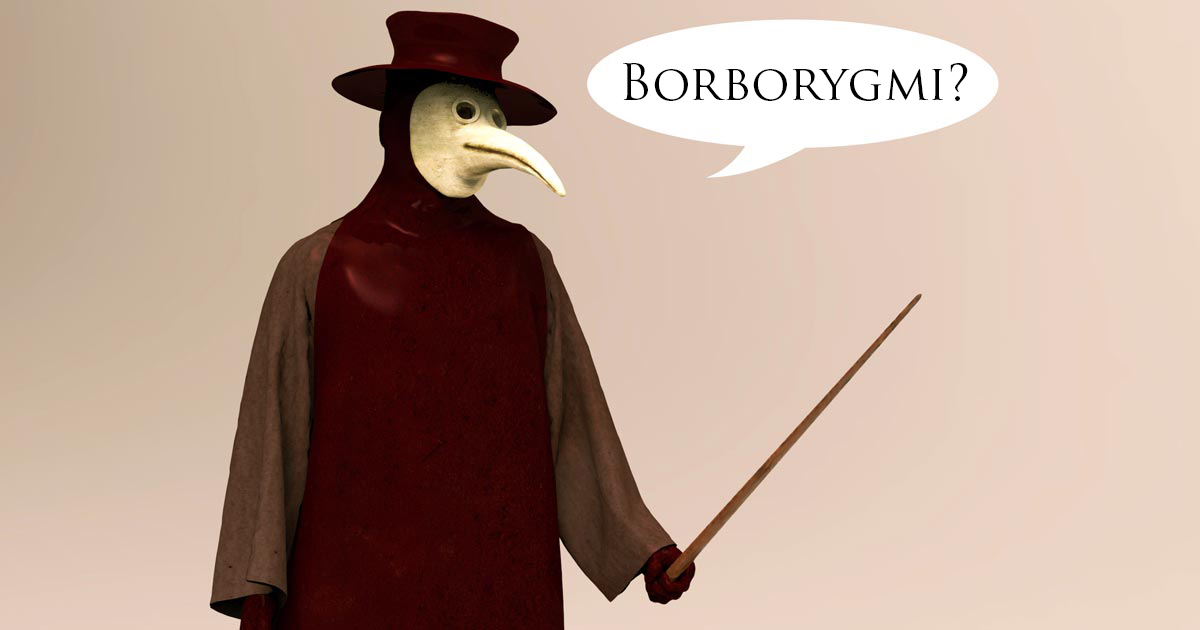It was tough being a medical practitioner in the middle ages.
The science of anatomy was advancing nicely – because one of humanity’s strengths throughout history has been making sure people’s innards ended up as outtards, giving scientifically minded people ample opportunity to study them (provided it wasn’t their own outtards, in which case they were probably a bit distracted) – and surgery was at least in its infancy for similar reasons; but physiology was embryonic at best, and microbiology wasn’t even a glint in the milkman’s eye.
In many cases, a 13th century physician wouldn’t have much of an idea about why people got sick, let alone knowing what would actually work to improve it.
Gobbledegook

So, how do you set yourself up as an expert in the mediaeval period when your actual knowledge base is tiny? Well, the same way experts in a similar position today do – invent a new language that makes you sound clever and ensures nobody else knows what you’re talking about.
Today, the blue-sky thinkers would call it “jargon”, but the prototype doctors of yore already had a couple of languages custom-made for the purpose – Greek and Latin.
Medical terms evolved from religious languages because early doctors liked to keep their terms impenetrable to the hoi polloi, but as the field developed into a true science, those highfalutin words actually became useful, because medical terms are beautifully precise, concise and evocative – to my ear at least.
Our secret language
I’ve heard it said that learning medical terminology is the equivalent of learning a new language – I’m not sure about that, but understanding what the heck doctors are talking about certainly makes you feel almost as if you’re privy to a secret knowledge hidden from the rest of the world.
In honour of this, and with an eye to their “trying to sound cleverer than you” origins, here are some of my favourite medical terms:
Cranial/caudal/rostral/medial/lateral/dorsal/ventral
I fell in love with these words as I was learning anatomy – previously, the only time I had encountered any of the words was learning that the terrible fleshy grey triangle of shark that breaks the water in Jaws was called the “dorsal fin”.
The ability to describe, without pictures, exactly where to find whatever it is you’re talking about on a body is a wonderful example of how precise and neat medical language can be (special mentions of course to axial/abaxial/labial/lingual, and so on).
The only problem with learning anatomy is that it completely threw me when I had to put together a barbecue – I assumed that “left” meant from the point of view of the barbecue, rather than the person cooking on it, because that’s how we roll in anatomy. Consequently, I put the legs on the wrong way round. Yes, I’m basically saying that I’m too highly trained, and should be excused from DIY duties.
-ectomy, -otomy

The beauty of a lot of medical terms is they’re suffixes or prefixes, and can be added to any part of anatomy you care to mention. As well as being shorter, these above suffixes sound a heck of a lot cleverer than “I cut this bit off” and “I cut a hole in this bit”.
-opathy
One that our historical cousins would have been proud of, this is basically saying “something wrong with this bit”, and means instead of saying “well, there’s something wrong with the liver, and it’s been going on for quite a while”, we can say “I’m afraid there’s evidence of chronic hepatopathy”.
Idiopathic
One of my very favourites, of course, because “idiopathic chronic hepatopathy” sounds a lot better than “I don’t know why it happened or exactly what it is, but your liver isn’t feeling too clever”.
Iatrogenic
Because, sometimes, it’s easier to say “iatrogenic haemorrhage” than “whoops”.
Best of the best
However, my final, crowning, favourite medical term is nothing to do with sounding clever or preciseness. It’s just the best medical word I’ve ever heard, and is the greatest example of onomatopoeia known to man – the term for the bubbly noises your gastrointestinal tract makes when it gets excited.
Borborygmi, thank you for being part of our language.

Leave a Reply